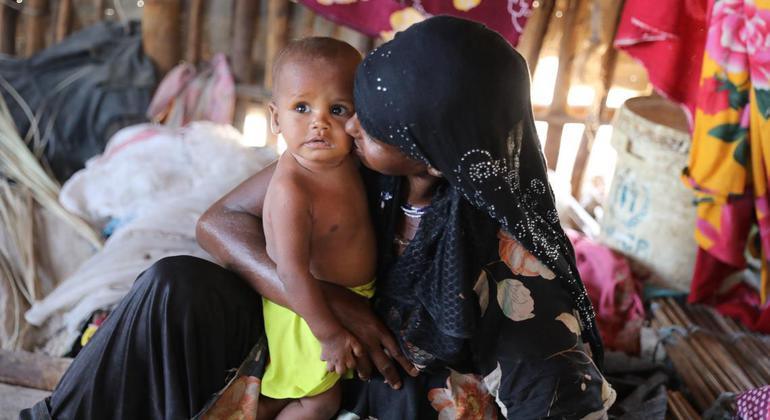The renunciation allows the continuation or resumption of “vital humanitarian aid”, including the treatment of HIV.
This means that 20 million people living with HIV and whose drugs are funded by the United States can continue to receive treatment. “This represents 20 million out of the 30 million people living with HIV worldwide,” said Christine Stegling, deputy executive director of UNAIDS, during the press point planned in Geneva.
Although we expect governments around the world to respond to the American announcement by supporting existing medication plans, “What really worries us is that … governments will currently focus on people ‘maintenance on treatment rather than prevention of new infections” She explained.
The global HIV response strongly depends on the funds of the US President’s emergency plan for the relief of AIDS (PEPFAR); It finances 70% of the overall response of aid.
Since its creation in 2003, Pepfar has saved more than 26 million lives by investing in critical programs for prevention, treatment, care and support for HIV In 55 countries, according to UNAIDS.
Nevertheless, “there is a lot of confusion in the field, in particular at the community level on the way in which the renunciation will be implemented,” reported Ms. Stegling, highlighting the disruption of the processing services.
Transport services and community health workers are also still affected by the American financing break, according to UNONIAD.
Risk meeting centers
The agency – which works with 70 countries – stressed that the break in assistance in the United States on community programs would result in the closure of numerous health centers without appointment and the termination of awareness -raising workers contracts, depriving effectively vulnerable support groups.
The largest interruption will be the community health services that have been crucial in the success of the fight against HIV, according to UNAIDS.
In Ethiopia, 5,000 public health contracts depend on American aid. “All these regions of Ethiopia have been dismissed, in all regions of Ethiopia, In addition to 10,000 data clerks, very important in Ethiopia, ”added Ms. Stegling.
Reduction of critical services
Thousands of individuals – women, young girls and priority populations at higher risk of sexually transmitted infections – will no longer be able to access critical services, such as the distribution of condoms, HIV screening, antiretroviral treatment , prophylaxis prior to the exposure for HIV prevention, screening for tuberculosis or support to combat sexist violence.
UNAIDS is most concerned about the long -term impact of the freezing of American financing on the prevention of new HIV infections, like most community services, while national governments tend to focus on the maintenance of people On treatment, rather than the prevention of new infections.
Fear on the peak in the deaths of AIDS
If the PEPFAR is not re -authorized between 2025 and 2029 and other resources are not found for HIV’s response, “there would be a 400% increase in the death of AIDS,” said UNAIDS. “It is 6.3 million people, 6.3 million deaths linked to AIDS that will occur in the future,” Stegling told journalists.
The Uusidas indicates that he will continue his efforts to ensure that during the 90 -day break, all the people affected by HIV continue to access the backup services.




